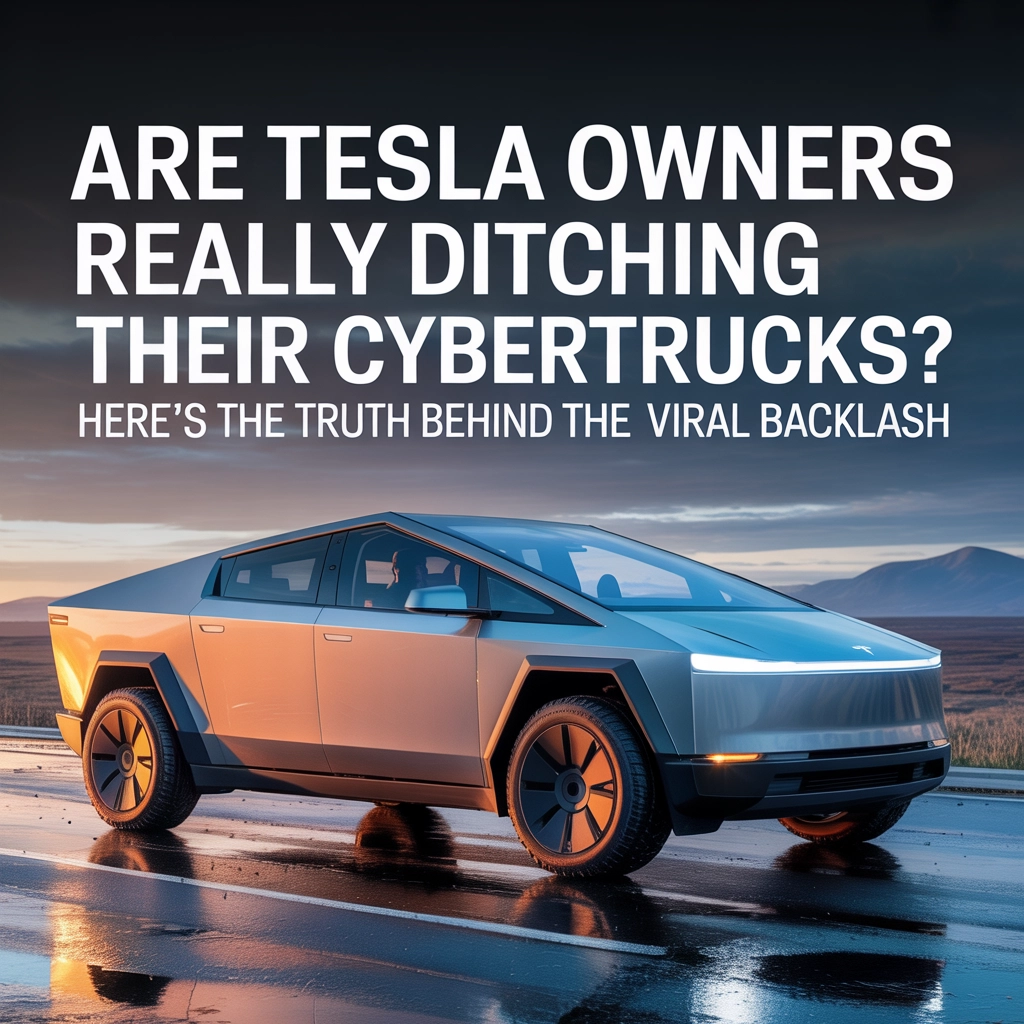You've probably seen the headlines. "Cybertruck owners fleeing in droves!" "Tesla's triangle truck is a total disaster!" "People are literally abandoning their Cybertrucks!" But here's the thing – most of these stories are mixing up two very different situations, and the truth is way more nuanced than the clickbait suggests.
Let's dig into what's actually happening with Tesla's controversial pickup truck and separate the real drama from the internet noise.
The Real Story Behind the Headlines
The confusion starts with how we define "ditching" a Cybertruck. Are we talking about people who already own them selling them off? Or are we talking about people canceling orders before they even take delivery? Because these are completely different scenarios.
Here's what the data actually shows: existing Cybertruck owners aren't mass-dumping their vehicles. Sure, some folks are selling theirs, but that's normal for any new car model. What's really happening is that tons of people who put down deposits years ago are now backing out before pickup day.
Tesla even had to issue ultimatums to reservation holders – pick up your truck by December 31st, 2024, or lose your $2,500 deposit. That kind of pressure doesn't happen when demand is strong. It happens when your showrooms are getting packed with unclaimed vehicles.
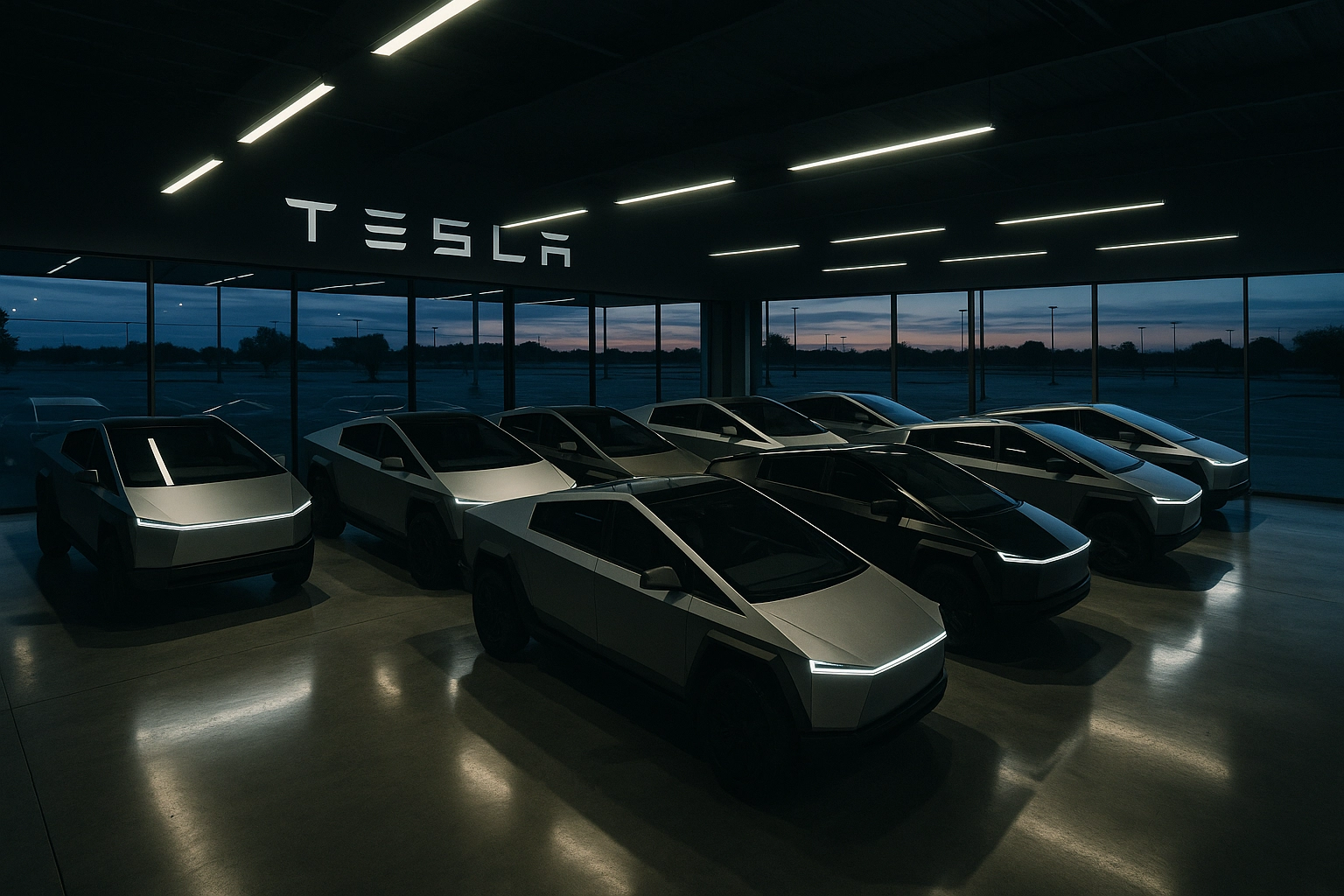
Think about it this way: if you ordered a Cybertruck back in 2019 for $39,900, and now you're looking at paying up to $140,000 for the fully-loaded Cyber Beast, you might have second thoughts too. That's not exactly the same price point most people had in mind when they clicked "reserve."
Why People Are Actually Canceling Orders
The reasons people are bailing on their Cybertruck orders before delivery tell a pretty clear story:
• Sticker shock – The final prices are way higher than the original estimates
• Political baggage – Elon Musk's controversial public statements have turned some buyers off
• Practical concerns – The truck's massive size doesn't fit in many garages or parking spots
• Resale value worries – Tesla's values have been dropping, making people nervous about their investment
• Range anxiety – Real-world range often falls short of advertised numbers
But here's where it gets interesting. The people who are actually taking delivery and driving these things daily? Most of them are keeping their trucks, even when they face some pretty intense public reactions.
Sarah, a tech worker in Austin, put it perfectly: "I knew I was getting a polarizing vehicle, but I didn't expect people to literally yell at me at red lights. Still love the truck though – it's just frustrating that I can't drive it without getting into political debates with strangers."
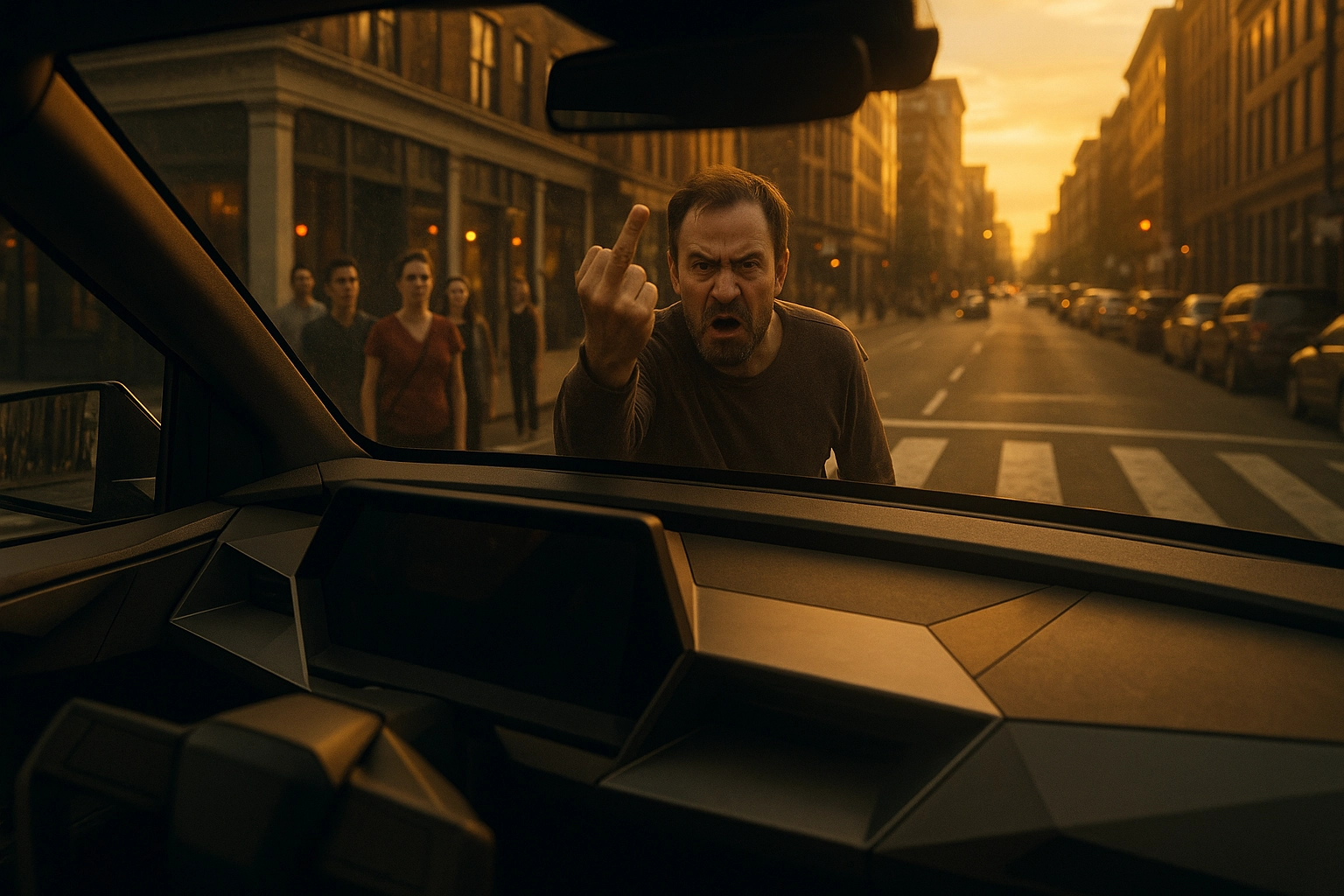
The Harassment Reality for Current Owners
This is where the story gets genuinely concerning. Cybertruck owners across the country are reporting daily harassment while driving their vehicles. We're talking middle fingers, angry notes left on windshields, people shouting slurs, and even physical intimidation.
Hiro Fang, who runs a restaurant in Victoria, says he gets "at least three or four people giving me the middle finger every day" just for driving his Cybertruck to pick up supplies for his business. He's found hostile notes and magnets stuck to his truck regularly.
Michael from Cathedral City faces even worse – "degrading notes, drivers repeatedly flipping him off and shouting slurs." The harassment has gotten so bad that some owners are genuinely worried about escalating aggression, especially since Musk's increased political involvement following the 2025 presidential inauguration.
But here's the kicker – despite all this hostility, these owners aren't ditching their trucks. They're finding ways to deal with it, educating people when possible, and continuing to use their vehicles for practical purposes. Fang still relies on his Cybertruck for restaurant supply runs. Others specifically bought theirs for Tesla's Full Self-Driving capabilities to reduce driving stress.
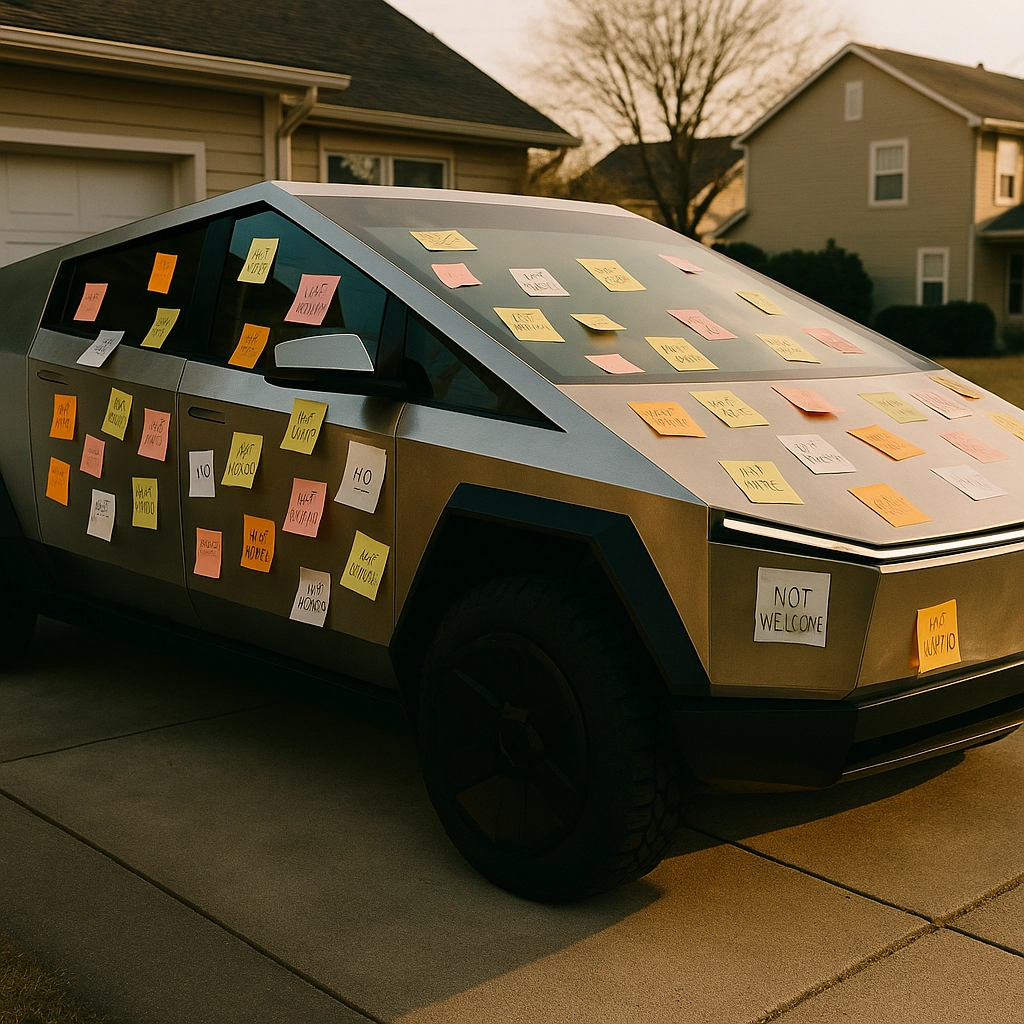
One owner summed it up: "Not everybody that's driving these vehicles is driving it for a political reason. We're literally just driving these vehicles because they're good vehicles."
Separating Fact from Fiction
The internet loves a good conspiracy, and the Cybertruck has spawned plenty of them. Fake viral videos claiming Tesla remotely deactivated people's Cybertrucks have been making rounds, complete with obviously doctored screenshots showing "Tesla Cybertruck De-Activated" messages.
Tesla has officially debunked these claims, but the fake videos keep spreading because they fit the narrative that people want to believe. It's way more exciting to think Tesla is playing Big Brother with their customers than to admit the truth is more boring – most cancellations happen before delivery, and most owners who take delivery stick with their trucks.
The misinformation problem is real though. These fake stories contribute to the overall narrative that Cybertruck ownership is somehow unstable or that Tesla is screwing over customers. In reality, the company is dealing with normal growing pains of launching a completely new type of vehicle, plus the added complexity of their CEO being one of the most polarizing figures in tech.
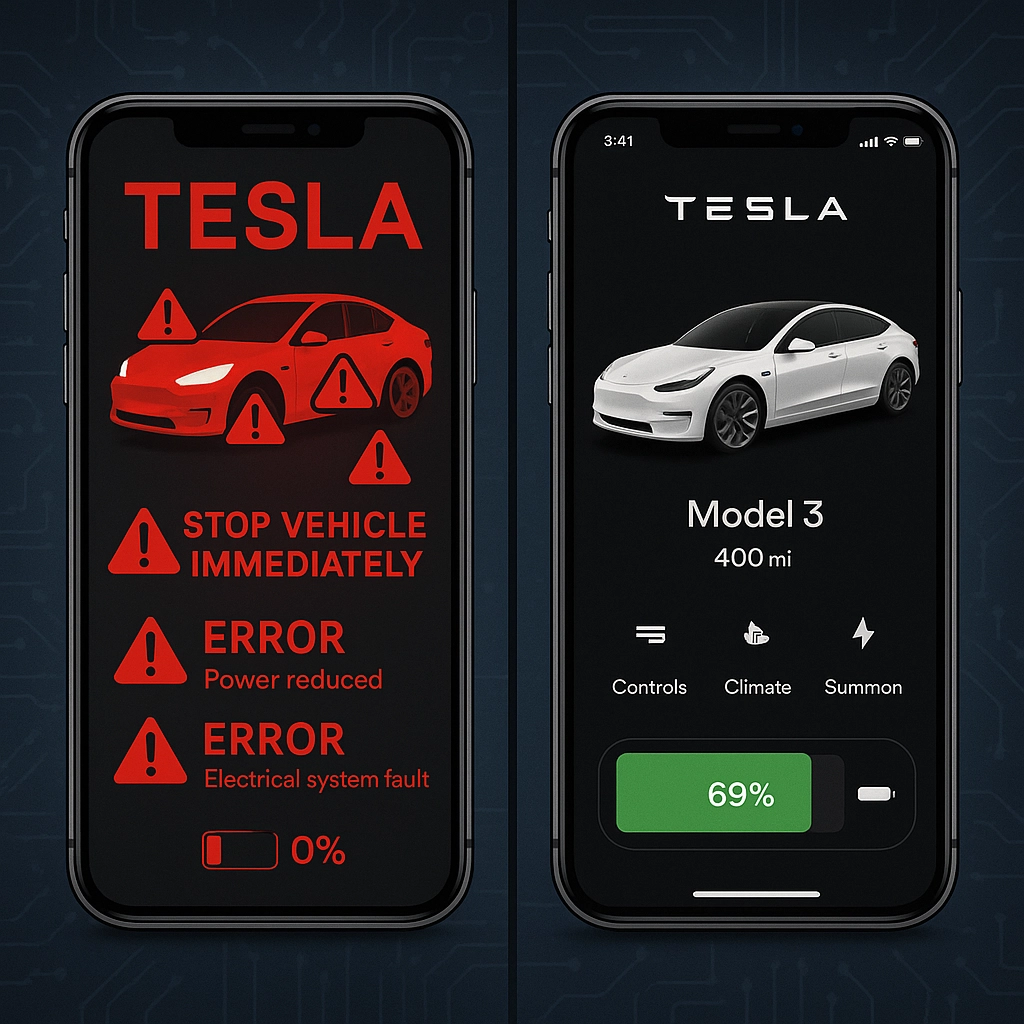
What's particularly wild is how the fake stories often get more engagement than the real ones. A completely fabricated video about Tesla "punishing" a customer will get millions of views, while actual owner experiences get buried in the noise.
The truth is messier and less dramatic than either extreme would have you believe. Yes, there are real issues with pricing, delivery delays, and quality control. Yes, owners face genuine harassment because of political associations. But no, there isn't some mass exodus of existing owners abandoning their vehicles en masse.
Most Cybertruck owners who take delivery seem to be in it for the long haul, harassment and all. They bought into Tesla's vision of the future, and a few middle fingers at traffic lights aren't enough to make them abandon that $100,000+ investment.
The real question isn't whether current owners are ditching their Cybertrucks – it's whether Tesla can convince the hundreds of thousands of people with reservations to actually complete their purchases. And honestly, with all the price increases, political drama, and public backlash, that's looking like a much tougher sell than Tesla probably expected back in 2019.
So what do you think – would you be brave enough to drive a Cybertruck knowing you might face daily confrontations with strangers who hate what your vehicle represents?

